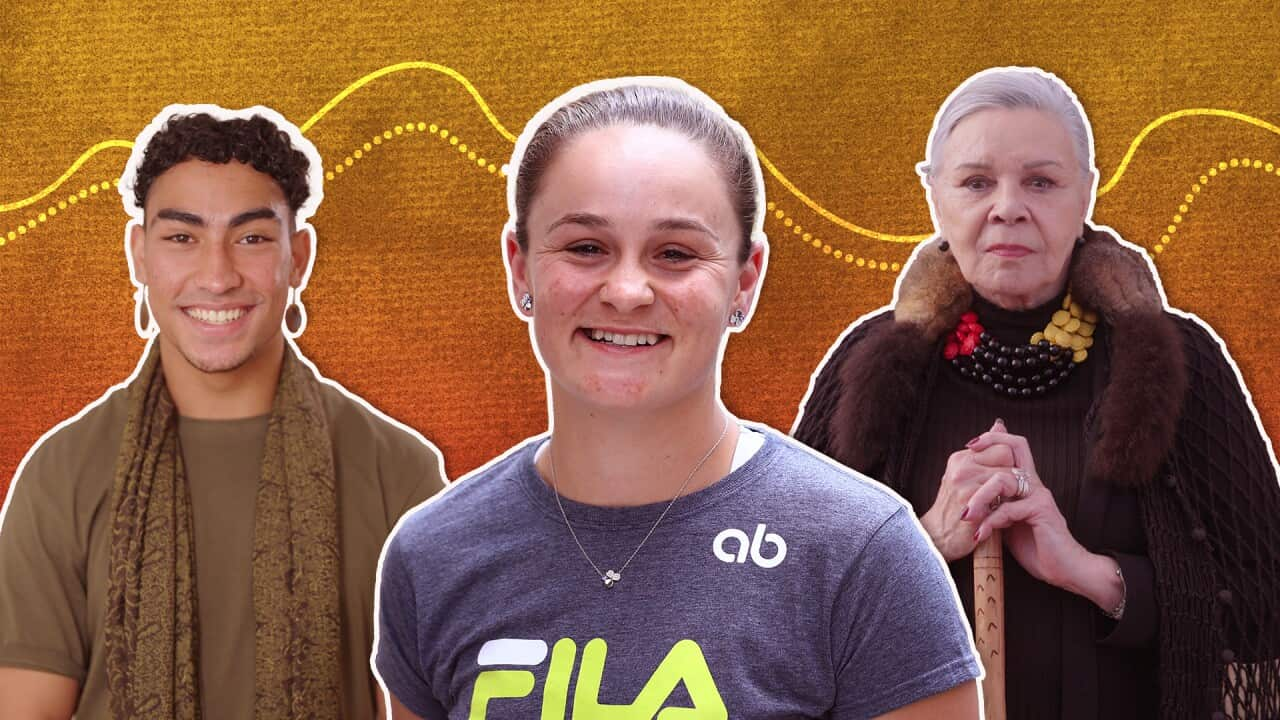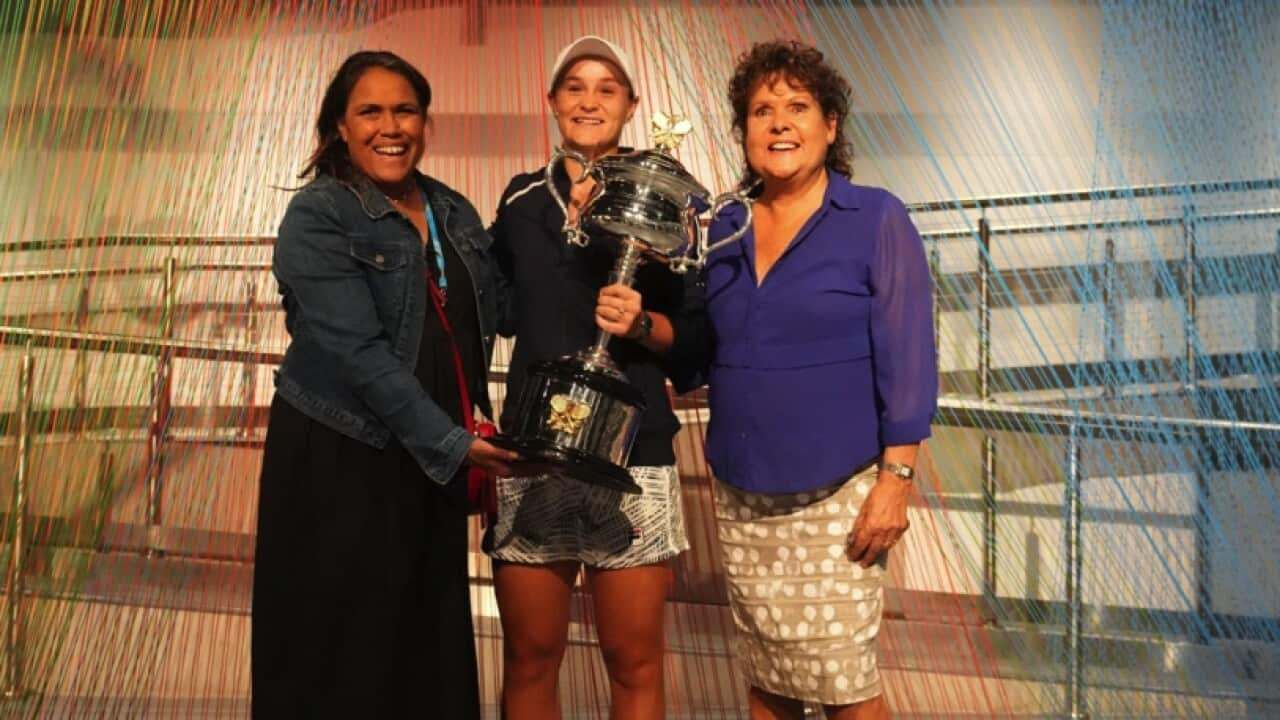Aunty Lois Peeler has always been confident.
At 17, she became the country's first Aboriginal model; a natural beauty, she proudly revelled in her looks at a time when the racist system didn't recognise Blak beauty; and she toured a war-torn Vietnam, performing for troops as one of the original Sapphires.
She puts down her confidence in her early life/youth to one thing.
"My Elders were always there when I chose to do things as a teenager," she told NITV.
"That's what we need to show our young people, that they can do anything."
Now it's something she has the "absolute pleasure" of doing for a living. As the principal of Worawa College, the country's only boarding school for Aboriginal girls, she's helping to shape the next generation.
She says it's vital work that is changing lives for the better.
"Education is the key," she said.
"We learn about ourselves, about the need for social change, the need for environmental change.
"You don't know what you don't know!"

Lois Peeler was a model before joining The Sapphires. Source: Supplied
Head, heart, heritage
Worawa welcomes First Nations girls from around the country, many of them from regional and remote communities. Some of the graduates are the first people in their families to finish high school.
The school offers a special holistic program, an integrated education that focuses equally on academic learning, health and well-being, and a celebration of culture.
"I think that's incredibly important," says Peeler.
"Let me say, when the school was founded, that holistic program was based on the lack of those things in mainstream schools: there was no positive identity of First Nations people; the curriculum was teaching that Captain Cook was the founder; there was no reference to the fact that we've been here for 60 thousand years.
"The education requirements were not being met, and neither were the well-being needs. That's what we provide today at Worawa." It sounds simple, but in the siloed education systems of white society, it is also rare. Peeler has seen first-hand the difference Worawa's holistic program has made in the lives of the young women who study there.
It sounds simple, but in the siloed education systems of white society, it is also rare. Peeler has seen first-hand the difference Worawa's holistic program has made in the lives of the young women who study there.

Students at Worawa College. Source: AAP
"Absolutely. You cant focus on your education unless you're feeling right in your heart and in your head," she said.
"Being able to identify as Aboriginal, and focus on the resilience and achievements of our people over 60 thousand years... that's very powerful. And that's what we see in our young people.
"They feel confident in who they are. They have aspirations to either go back to work in their communities, to be the leaders, or go on to higher education."
A prestigious education
If Lois Peeler sounds passionate about education, there's a good reason for it.
It's a passion that has seen her tirelessly advocate for First Nations people over decades: she currently chairs the Regional Aboriginal Justice Advisory Committee, was Assistant Director of the Aborigines Advancement League, and worked in the public sector for sixteen years in both state and federal departments managing Aboriginal Affairs.
She says her drive dates back to the education she received in her earliest days. She grew up on Cummeragunja Reserve, the revered Aboriginal settlement that held a rich vein of formidable First Nations heroes. "Take Uncle William Cooper, Uncle Jack Patten, Uncle Doug Nicholls, and Uncle Bill Onus. They were all from Cummeragunja, as was Aunty Marge Tucker and, I have to say, my own mother, Geraldine Briggs.
"Take Uncle William Cooper, Uncle Jack Patten, Uncle Doug Nicholls, and Uncle Bill Onus. They were all from Cummeragunja, as was Aunty Marge Tucker and, I have to say, my own mother, Geraldine Briggs.

Looking across the Murray River to Cummeragunja Reserve, 1893. Source: Wikimedia Commons
"So we were blessed to have a good education."
It's an education she has now helped to extend to the broader community. Last month, amid a smoking ceremony and traditional dancing from Worawa students, Peeler helped launch a new resource for Victorian students from years 7 to 10.
Developed at Worawa, the resource is titled "Aboriginal Change Makers", and celebrates the unsung heroes of this country, First Nations men and women who resisted the poisoned grip of colonialism and were formative to the state of Indigenous politics today. "I think these stories need to be told. These are people who have worked against the odds to make changes, often at great personal sacrifice.
"I think these stories need to be told. These are people who have worked against the odds to make changes, often at great personal sacrifice.

Lois Peeler at the launch of the Aboriginal Change Makers program, attended by students of Worawa. Source: Joe Armao
"People often ask, 'Why weren't we taught [this]?' These stories have been hidden, we've never been noticed as part of Australian history.
"Everybody is looking for this, now that we are... advancing the ideas of the Statement from the Heart, of treaty, of self-determination, and we have to bring along the broader community.
"Now that would truly support our nation's journey to healing and reconciliation."
Lois Peeler has always been confident, and says she is confident of one more thing: the future is looking bright.













